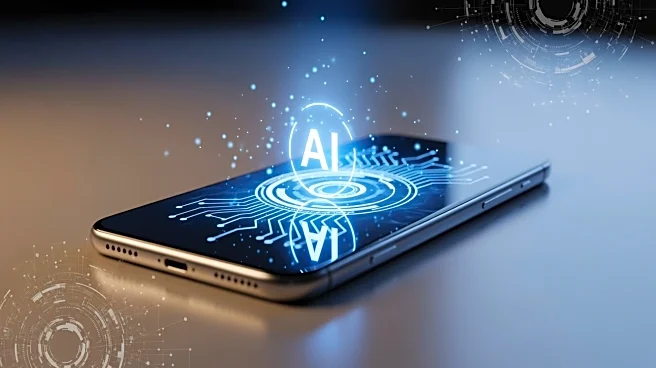What's Happening?
The Sora app, developed by OpenAI, has gained significant attention for its hyperreal AI-generated videos, leading to a surge in downloads. The app allows users to create short videos using AI, raising concerns about the authenticity of content and the potential
for misinformation. Hollywood and other stakeholders have expressed concerns over the use of likenesses without consent, prompting discussions on copyright and ethical AI use.
Why It's Important?
The rise of AI-generated content poses challenges for digital trust and authenticity. As AI technology becomes more accessible, the potential for misuse and misinformation increases, impacting public perception and trust in digital media. The concerns raised by Hollywood highlight the need for clear guidelines and regulations on the use of AI in content creation, which could influence future policies and industry standards.
What's Next?
OpenAI and other stakeholders may need to address the ethical and legal implications of AI-generated content, potentially leading to new regulations or industry standards. The app's popularity could drive further innovation in AI technology, while also prompting discussions on digital rights and privacy. Stakeholders, including tech companies and legal experts, may engage in dialogue to find solutions that balance creativity with ethical considerations.
Beyond the Headlines
The situation reflects broader societal challenges in adapting to rapid technological advancements. It raises questions about the role of AI in shaping digital culture and the responsibilities of creators and platforms in ensuring ethical use. The case may contribute to ongoing debates about the future of digital media and the impact of AI on creativity and authenticity.
















